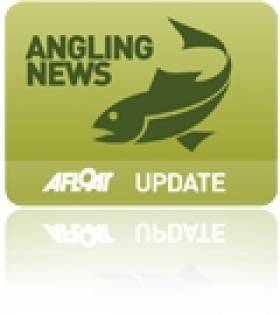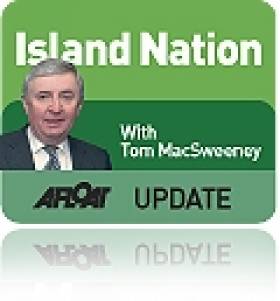Displaying items by tag: Fine
NI Faces Big Fine Over Horse Mussels
#MARINE WILDLIFE - Northern Ireland faces a whopping £8 million (€9.6 million) fine from the EU over its failure to protect horse mussels.
According to BBC News, "little has been done" to protect horse mussel reefs in Strangford Lough despite promises from two government departments as far back as six years ago.
Last year Afloat.ie reported on a study from Queen's University Belfast that revealed the extent of damage to horse mussel reefs in the lough by fishing activity.
Strangford Lough is officially protected as a Special Conservation Area and a Marine Nature Reserve, as well as an Area of Special Scientfic Interest, but as BBC News states, "in reality there has been little protection put in place".
Horse mussels are pivotal to the lough's ecosystem, as some 100 other species rely on the reefs formed by the mussels in the seabed for their habitat.
NI officials now have just a few months to persuade the European Commission that they are taking strong action to protect the species, otherwise they will be charged with breaking EU directives.
BBC News has more on the story HERE.
Man Escapes Jail for Illegal Fishing, Obstructing Officer
#ANGLING - A man narrowly escaped prison for obstructing a fisheries officer in a case taken by Inland Fisheries Ireland (IFI) at Carrickmacross District Court earlier this month.
Piotr Flaga - of Bog Road in Drogheda - was fined €450 by Judge Sean McBride after he was found to have set lines at a lake in Carrickmacross on 18 and 19 August last with the intention of taking coarse fish illegally.
The court heard that when apprehended by Assistant Inspector Ronan O’Brien, Flaga refused to co-operate and would not give his name and address. He then obstructed Asst Insp O’Brien by moving his vehicle towards him in a bid to escape when questioned.
Gardai were called to the scene and subsequently Flaga was issued with two summons.
Flaga entered a guilty plea and was convicted under Sections 301 and 308 of the 1959 Fisheries Act. He was further charged for breach of byelaw 595 of 1977 in relation to fishing in fresh water for coarse fish by means other than rod and line.
The defendant was fined a total of €450 with five months to pay with 14 days imprisonment in default. Some €500 in costs were also awarded to Inland Fisheries Ireland.
Judge MacBride acknowledged Flaga's public apology to Asst Insp O'Brien, but emphasised that any person who came before him in future for a similar offence would face imprisonment.
Ports Must Not be Sold
Over 90 per cent of the nation's exports and imports move by sea. Our ports are the essential avenue, the doors to Ireland. They are the property of the nation and must work for the people, whose future has been destroyed by the greed of private interests. To suggest that recovery can be achieved by sale of these vital assets is a nonsense and damaging to the interests of the nation.
What is needed is a clear, definitive national ports policy in which the government sets down what the ports are to do for the nation. Their role should be identified clearly, their boards and managements told what they are expected to achieve on behalf of the nation, with penalties for failure.
Fine Gael had committed in its election manifesto, to replacing the existing boards of all State Port companies and Harbour Commissioners within one year of entering government.
Fianna Fail and the Progressive Democrats in government had turned the port companies into semi-private entities, responsible for their own financial operations. While it was indicated that this would improve competitiveness and provide better and more cost-friendly services for users, who would be represented on the company boards, there are differing views about how effective this has been.
Competition is not necessarily always the harbinger of effective service or provision of choice. A small island nation with a limited number of primary ports could have a policy maximising effectiveness, delineating between primary and minor ports providing commercial services, supporting the fishing industry and leisure sectors. There must be containment of costs, efficiency of operation and the best services for exporters and importers. There should be investment where required and could even be provision for private investment. But the ownership should remain with the State on behalf of the people.
The ports are national resources, not to be sold off to private interests.
Those who drew up the recovery report which proposes the sale of the ports represented private interests and included are banking and speculative development interests. They echo, in regard to the ports, a similar proposal in the 'second coming' of Bord Snip Nua'. There are some aspects of their suggestions which merit further consideration, but it is regrettable that people at high levels of position in Ireland appear to not fully appreciate that the nation is a small island for whom the sea and its approaches are of vital importance.































































